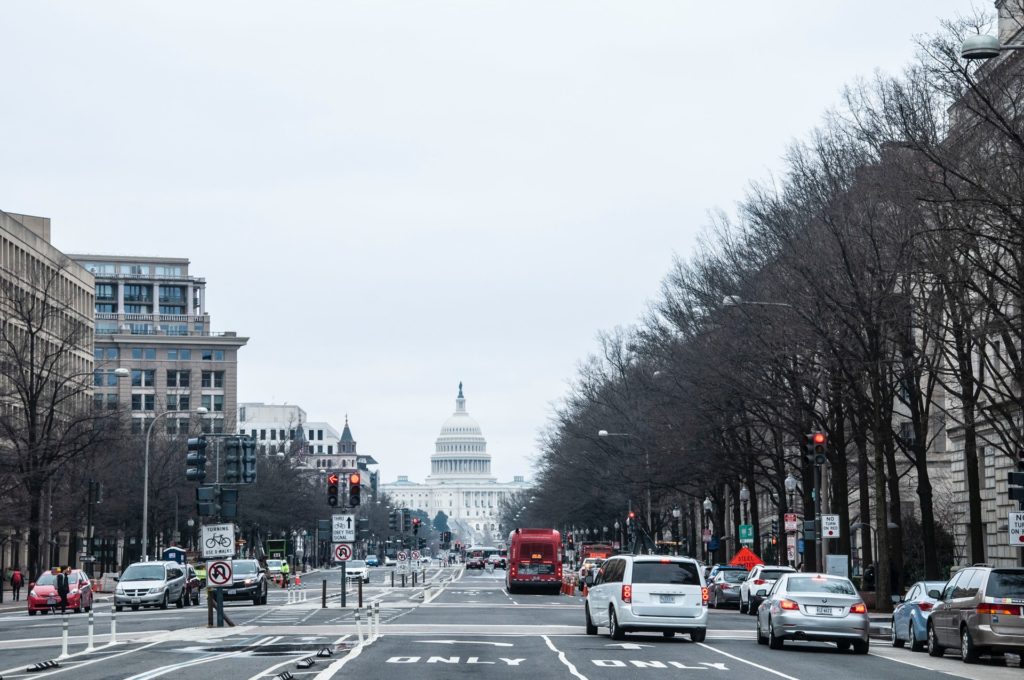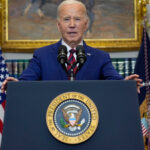
Published December 1, 2021
Liberalism has a democracy problem. At least, that’s what liberals, including self-described conservative liberals, are saying. For example, New York Times columnist David Brooks is fretting about the possibility of conservatives “using state power to break up and humble the big corporations and to push back against coastal cultural values. The culture war merges with the economic-class war — and a new right emerges” to rally the “masses against the cultural/corporate elites.”
That sounds awesome.
But Brooks is horrified at the prospect of conservatives using democracy to defend traditional values and American livelihoods. He is dismissive of the idea that “the corporate elite, the media elite, the political elite, and the academic elite have all coagulated into one axis of evil, dominating every institution and controlling the channels of thought,” but this aggregation of power is obviously real and hostile to us, he just doesn’t want to do anything about it. Don’t we know that imposing values and shaping economic conditions are for bureaucrats and oligarchs, not ordinary people?
This attitude is typical of many pundits who see conservatism’s task as the preservation of liberalism. This view is common among self-described conservatives working in elite institutions and media, and is epitomized by David French’s infamous declaration that drag queen story hours in public libraries are among “the blessings of liberty.” French argues that those who would restrict such things are dangerously illiberal.
This view is rooted in an acceptance of modern liberal ideology as the fulfillment of the American ideal. As Bret Stephens put it, “the purpose of American conservatism is to conserve the substantive principles of 1776 — that is, of the open mind and the ever more open society.” This is a mistaken understanding of conservatism, and therefore it is no surprise that its advocates are perpetually attacking other conservatives. French in particular views himself as a prophetic voice, but his ideas of prophesy is going to Nineveh to condemn Israel.
It is true that some liberal elements, such as limited government and individual rights, are an essential part of our nation’s heritage. But “conservative” liberals, let alone left-liberals, don’t know when to stop. Instead of a practical liberalism based on a humble recognition of human finitude and fallibility, they have devoted themselves to a liberal ideology at odds with the American patrimony.
Historically, liberal practices, from representative government to trial by jury, developed before liberal ideology. And the influence of early liberal theories, such as those developed by John Locke, were greatly moderated by classical and Christian ideas, as well as the practical experience of American self-government.
This experiential and intellectual mix ensured that the root of America’s historical liberalism was humility. This liberalism recognized that humans are finite and fallen beings, and therefore it divided and limited power.
But what Brooks and his ideological comrades are championing is not this modest liberalism of the American Founding, instantiated in longstanding institutions and practices, and codified in the Constitution. Americans did not shy away from moral judgments in the public sphere, or efforts to order public affairs toward the good. Historically, American law and society regulated subjects from sex and family life to the Sabbath.
In contrast, modern liberal ideology proclaims even mild moral regulation to be harbingers of totalitarianism and theocracy. But by doubting the prudential ability of the people to avoid such excesses, it itself plunges into excess.
Modern liberalism expands and distorts the old liberal humility of limited power into a value-neutral moral relativism that disdains any external arbiters of right and wrong. Instead of the belief that government power should be limited because we are fallen, there is the belief that nothing should limit the freedom of the autonomous, self-creating individual, and that government power should be deployed to remove obstacles to self-realization.
This liberalism pretends to be unable to distinguish between good and evil, God and the devil, sin and sanctity, sanity and delusion. This extends liberal neutrality far beyond what the Constitution requires, or what can be practically enacted.
Liberal proceduralism and neutrality are impossible in family life and education, for instance, and in these areas liberals often become undemocratic on behalf of their hypertrophied liberalism. That many liberals do not realize this simply shows that they have deluded themselves — the problem with trying to place yourself behind liberal theorist John Rawl’s “veil of ignorance” is that you might succeed in making yourself stupid enough to believe that your own perspective is in fact a neutral one.
Thus, there is an incoherence to liberalism’s semi-official relativism, for it relies on smuggling some moral views back into political life as supposedly neutral liberal norms. This is manifest in the tendency to try to forestall democratic debate and decisions by insisting that what the people want is illiberal. When Andrew Sullivan bemoans the “illiberalism” of removing sexually explicit materials from school libraries, he is not actually supporting liberal neutrality, but instead advocating for the inclusion of such material in government schools, even if parents in particular and the community in general object.
Declaring that parental and democratic involvement in schools, from curricula to libraries, is illegitimate doesn’t mean that decisions will be neutral, just that they will be made according to the biases of teachers, administrators, librarians and suchlike. And this pattern is repeated on issue after issue, with “conservative” liberals insisting that left-liberals must be allowed to win in the name of “liberal norms.”
This framing attempts to put the essential question of “who decides” beyond the realm of democratic politics. Liberal “conservatives” are appalled at the idea of using democracy to do anything about the consolidation of elite power against us. Yet, to take one example, there is nothing neutral or natural in allowing social media giants to act as publishers who choose what content to suppress or elevate, while shielding them from the legal liabilities of publishing.
Right-liberals profess to being afraid of state power. And it is dangerous. But for ordinary people, conservative government may be the only defense against the combined power of elites in business, media, tech, and academia.
It is time for “conservative” liberals such as Brooks and French to realize that the preservation of America’s true liberal heritage requires democratic reaction against oligarchy. Conservatives leaders should be rallying the people against the cultural and corporate elites — and keeping drag queens away from children would be a good start.
Nathanael Blake is a senior contributor to The Federalist and a postdoctoral fellow at the Ethics and Public Policy Center.
Nathanael Blake, Ph.D. is a Postdoctoral Fellow at the Ethics and Public Policy Center. His primary research interests are American political theory, Christian political thought, and the intersection of natural law and philosophical hermeneutics. His published scholarship has included work on Jean-Jacques Rousseau, Hans-Georg Gadamer, Alasdair MacIntyre, Russell Kirk and J.R.R. Tolkien. He is currently working on a study of Kierkegaard and labor. As a cultural observer and commentator, he is also fascinated at how our secularizing culture develops substitutes for the loss of religious symbols, meaning and order.









